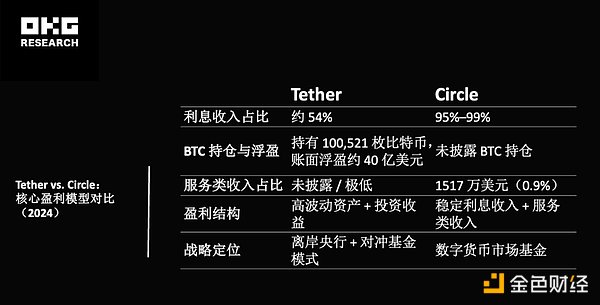
Tether is becoming one of the most profitable companies in the world per capita with an annual profit of US$13 billion and a floating profit of BTC holdings of more than US$4 billion.
Behind this is the ultimate comparison of the two stablecoin issuance models:
Tether: The ultimate profit
Circle: The ultimate compliance
Tether: The "central mother + hedge fund" in the digital world• BTC holdings: 100,521
• The cost is about $42,000, and the book profit is ~$40 100 million
• Q4 Reserve Report: US Treasury holdings exceeded $113 billion, with excess reserves $7 billion +
• Interest income is approximately $7 billion, accounting for approximately 54% of net profit
It is worth noting that Tether included the unrealized floating profits of Bitcoin and gold (approximately $5 billion) in current profits, which is in line with the principle of fair value accounting, but it also means that its profits are highly dependent on market fluctuations.
In other words: if the rise is profitable, the decline is retraceable. This is one of the core differences from the Circle model.
Circle (USDC) IPO discloses core information• Total revenue in 2024: $1.676B
• Among them, interest income accounts for as high as 95%–99%
• The service fee is only $15.17M, accounting for 0.9%
(Source: 2025 S-1 Prospectus)
USDC is more like a pure US bond money fund, with a stable revenue model but lacks flexibility.This also means:
▸ Tether is more like an "offensive central bank + offshore hedge fund", making profits through asset fluctuations
▸ Circle is more like a "Feder whitelist bank", promoting compliant listing through stable interest rate spreads
The issuance of stablecoins is no longer just a coin right, but also a choice between capital structure and strategic direction.
As Tether expands its BTC and diversified asset investments, Circle is striving to move closer to traditional financial structures. Regulation and structure are important, but profits ultimately come from capital efficiency.












